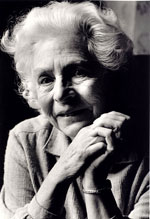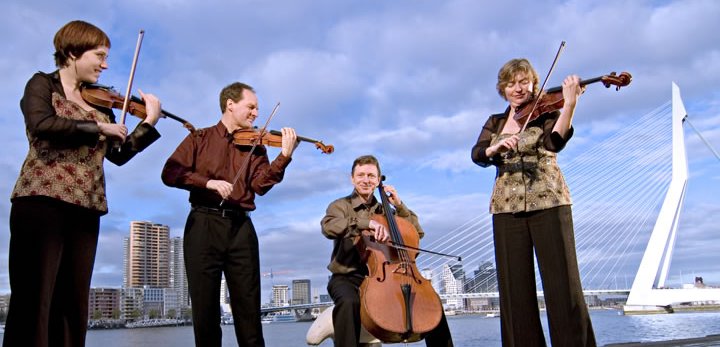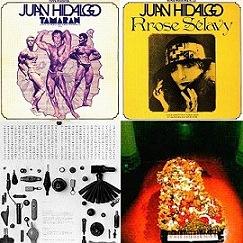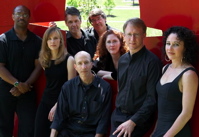Last night’s Monday Evening Concert was programmed by Kent Nagano: “Bach and the Music of Today”. This is hardly a fresh theme, and last night’s program didn’t reveal any fresh ideas of resonance across the centuries. But it did let us hear works of four composers of today, and that was welcome.
I first heard the music of Kurt Rohde when Nagano programmed his Double Trouble (2002) for the 2004 Ojai Festival. Last night Rohde and his friend Ellen Ruth Rose performed the virtuosic parts for two violas, supported by a small ensemble of violin, cello, flute, clarinet, piano; I enjoyed last night’s performance much more than my vague recollection of the Ojai performance. Rohde’s web site has clips from the first and the last of three movements, and listening is worth your time. Rohde and Rose also played the delightful Viola, Viola (1997) of George Benjamin. This work was written at the behest of Takemitsu for the opening of a Tokyo concert hall, and Benjamin gets a seldom-heard range of color and expressiveness from his viola duet. Here’s the single clip from a recording of the work, but you won’t get a feeling for how good a work it is. Fortunately, it receives reasonably broad appearance on programs.
The largest work of the first half of the concert was by Unsuk Chin, whose “Alice in Wonderland” opera is scheduled for performance in Munice this June, led by Nagano. Chin’s work was Fantaisie Mecanique (1994/1997), a work for trumpet, trombone, piano, and percussion (two players). The work has been recorded, and a single clip is available from the German Amazon site here. Chin achieves a great amount of sonority from her five performers, and the piece was very well played last night.
Ichiro Nodaira was the most active person in last night’s concert. He performed the four Bach works on Steinway. (One of these was Busoni’s inflated “transcription” for piano of Bach’s “Chaconne” from the Partita in D Minor; this provided a rather bizarre conclusion to the program and its theme.) Nodaira conducted three of the works. One of these was his own composition, Texture du Delire I (1982) for violin, cello, flute, clarinet, piano and two electronic keyboards. The work has been recorded with Nagano conducting the Intercontemporain, but I couldn’t find a clip. Nodaira’s transcriptions of Bach keyboard works for orchestra has been performed by the Chicago Symphony and the NY Philharmonic.
 I caught the second of “In Your Ear Redux” concerts at Zankel Hall with The Tensions Mountain Boys Saturday night, and I was happy I did!
I caught the second of “In Your Ear Redux” concerts at Zankel Hall with The Tensions Mountain Boys Saturday night, and I was happy I did! Why a String Quartet? What is it that has given it its exalted reputation and mystique? Why have so many composers regarded it as the perfect medium of expression, though it is perhaps the most demanding to write for? And why do distinguished artists often prefer to work as a team in a first class quartet rather than make bigger money as, say, orchestral leaders? Music means different things to different people: but for those to who music is an intellectual art, a balanced and reasoned statement of ideas, an impassioned argument, an intense but disciplined expression of emotion – the string quartet is perhaps the most satisfying medium of all.
Why a String Quartet? What is it that has given it its exalted reputation and mystique? Why have so many composers regarded it as the perfect medium of expression, though it is perhaps the most demanding to write for? And why do distinguished artists often prefer to work as a team in a first class quartet rather than make bigger money as, say, orchestral leaders? Music means different things to different people: but for those to who music is an intellectual art, a balanced and reasoned statement of ideas, an impassioned argument, an intense but disciplined expression of emotion – the string quartet is perhaps the most satisfying medium of all.

 Juan Hidalgo’s
Juan Hidalgo’s  One of the hottest things in Philadelphia has to be the
One of the hottest things in Philadelphia has to be the  A good time is to be had this Saturday night at Zankel Hall.
A good time is to be had this Saturday night at Zankel Hall.